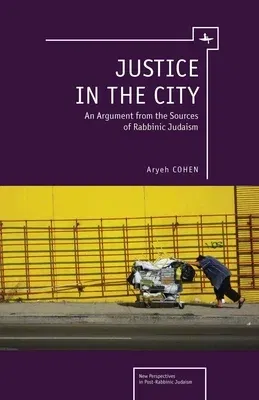Aryeh Cohen
(Author)Justice in the City: An Argument from the Sources of Rabbinic JudaismHardcover, 12 January 2012

Qty
1
Turbo
Ships in 2 - 3 days
In Stock
Free Delivery
Cash on Delivery
15 Days
Free Returns
Secure Checkout

Part of Series
New Perspectives in Post-Rabbinic Judaism
Print Length
160 pages
Language
English
Publisher
Academic Studies Press
Date Published
12 Jan 2012
ISBN-10
1936235641
ISBN-13
9781936235643
Description
Product Details
Author:
Book Format:
Hardcover
Country of Origin:
US
Date Published:
12 January 2012
Dimensions:
23.39 x
15.6 x
1.12 cm
ISBN-10:
1936235641
ISBN-13:
9781936235643
Language:
English
Location:
Boston, MA
Pages:
160
Publisher:
Weight:
421.84 gm